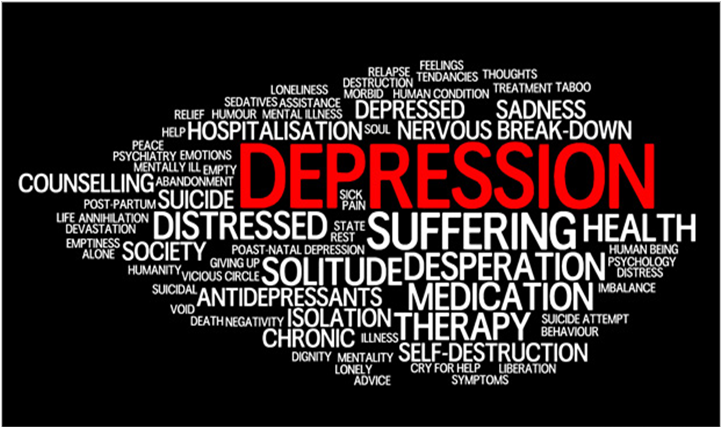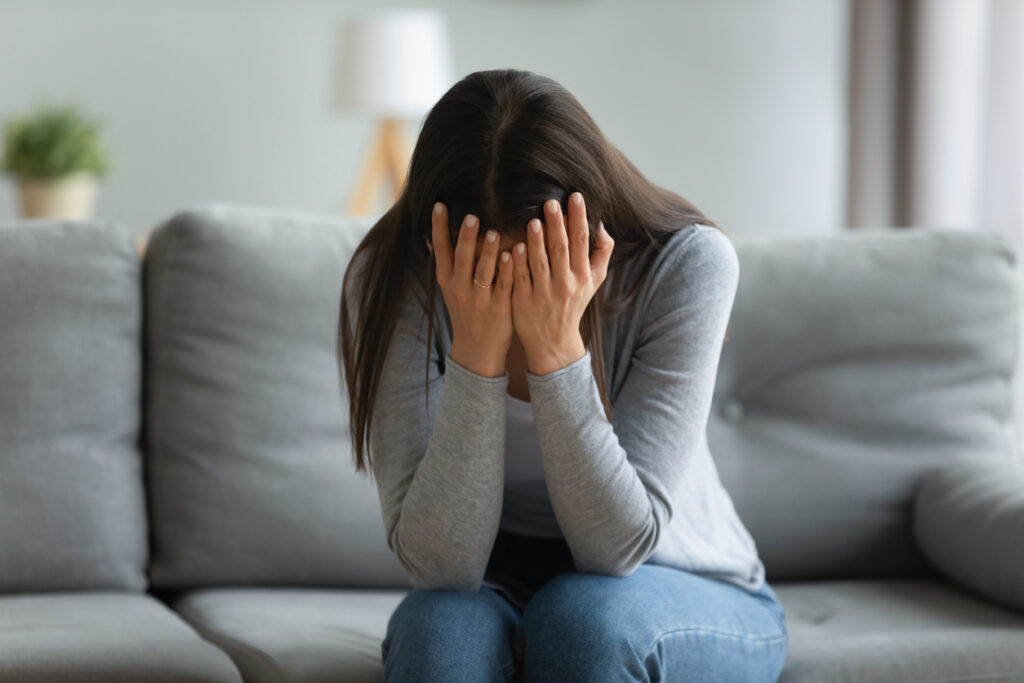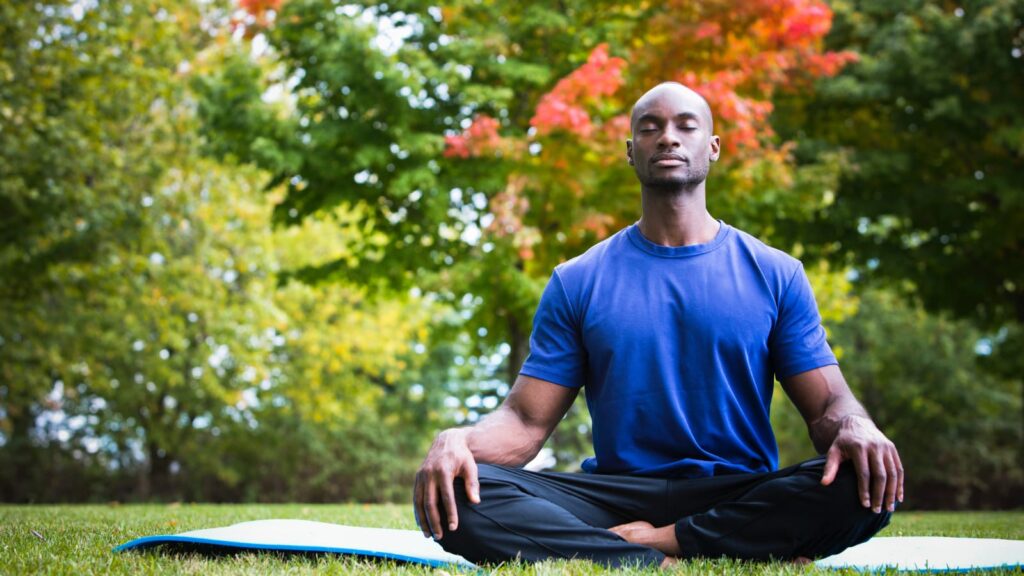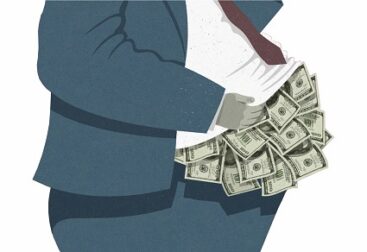Depression is a mood disorder that causes a persistent feeling of sadness and loss of interest. Also called major depressive disorder or clinical depression, it affects how you feel, think and behave and can lead to a variety of emotional and physical problems. You may have trouble doing normal day-to-day activities, and sometimes you may feel as if life isn’t worth living. More than just a bout of the blues, depression isn’t a weakness and you can’t simply “snap out” of it. Depression may require long-term treatment. But don’t get discouraged. Most people with depression feel better with medication, psychological counseling or both.

Symptoms
Although depression may occur only one time during your life, usually people have multiple episodes of depression. During these episodes, symptoms occur most of the day, nearly every day and may include:
- Feelings of sadness, tearfulness, emptiness or hopelessness
- Angry outbursts, irritability or frustration, even over small matters
- Loss of interest or pleasure in most or all normal activities, such as sex, hobbies or sports
- Sleep disturbances, including insomnia or sleeping too much
- Tiredness and lack of energy, so even small tasks take extra effort
- Changes in appetite — often reduced appetite and weight loss, but increased cravings for food and weight gain in some people – Anxiety, agitation or restlessness
- Slowed thinking, speaking or body movements
- Feelings of worthlessness or guilt, fixating on past failures or blaming yourself for things that aren’t your responsibility
- Trouble thinking, concentrating, making decisions and remembering things
- Frequent or recurrent thoughts of death, suicidal thoughts, suicide attempts or suicide
- Unexplained physical problems, such as back pain or headaches
For many people with depression, symptoms usually are severe enough to cause noticeable problems in day-to-day activities, such as work, school, social activities or relationships with others. Other people may feel generally miserable or unhappy without really knowing why.

Causes
It’s not known exactly what causes depression. As with many mental disorders, a variety of factors may be involved, such as:
- Biological differences. People with depression appear to have physical changes in their brains. The significance of these changes is still uncertain, but may eventually help pinpoint causes.
- Brain chemistry. Neurotransmitters are naturally occurring brain chemicals that likely play a role in depression. Recent research indicates that changes in the function and effect of these neurotransmitters and how they interact with neurocircuits involved in maintaining mood stability may play a significant role in depression and its treatment.
- Hormones. Changes in the body’s balance of hormones may be involved in causing or triggering depression. Hormone changes can result with pregnancy and during the weeks or months after delivery (postpartum) and from thyroid problems, menopause or a number of other conditions.
- Inherited traits. Depression is more common in people whose blood relatives also have this condition. Researchers are trying to find genes that may be involved in causing depression.

Treatments
Medications and psychological counseling (psychotherapy) are very effective for most people with depression. Your primary care doctor or psychiatrist can prescribe medications to relieve symptoms. However, many people with depression also benefit from seeing a psychologist or other mental health professional. If you have severe depression, you may need a hospital stay, or you may need to participate in an outpatient treatment program until your symptoms improve.
Role of exercises
Depression symptoms often improve with exercise. Here are some realistic tips to help you get started and stay motivated. When you have anxiety or depression, exercise often seems like the last thing you want to do. But once you get motivated, exercise can make a big difference. Exercise helps prevent and improve a number of health problems, including high blood pressure, diabetes and arthritis. Research on anxiety, depression and exercise shows that the psychological and physical benefits of exercise can also help reduce anxiety and improve mood. The links between anxiety, depression and exercise aren’t entirely clear — but working out and other forms of physical activity can definitely ease symptoms of anxiety or depression and make you feel better. Exercise may also help keep anxiety and depression from coming back once you’re feeling better.

How does exercise help depression and anxiety?
Regular exercise probably helps ease depression in a number of ways, which may include:
- Releasing feel-good brain chemicals that may ease depression (neurotransmitters, endorphins and endocannabinoids)
- Reducing immune system chemicals that can worsen depression
- Increasing body temperature, which may have calming effects
- Regular exercise, has many psychological and emotional benefits, too. It can help you:
- Gain confidence. Meeting exercise goals or challenges, even small ones, can boost your self-confidence. Getting in shape can also make you feel better about your appearance.
- Take your mind off worries. Exercise is a distraction that can get you away from the cycle of negative thoughts that feed anxiety and depression.
- Get more social interaction. Exercise and physical activity may give you the chance to meet or socialize with others. Just exchanging a friendly smile or greeting as you walk around your neighborhood can help your mood.
- Cope in a healthy way. Doing something positive to manage anxiety or depression is a healthy coping strategy. Trying to feel better by drinking alcohol, dwelling on how badly you feel, or hoping anxiety or depression will go away on its own can lead to worsening symptoms.

How do I get started and stay motivated?
Starting and sticking with an exercise routine or regular physical activity can be a challenge. These steps can help:
- Identify what you enjoy doing. Figure out what type of physical activities you’re most likely to do, and think about when and how you’d be most likely to follow through. For instance, would you be more likely to do some gardening in the evening, start your day with a jog, or go for a bike ride or play basketball with your children after school? Do what you enjoy to help you stick with it.
- Get your mental health provider’s support. Talk to your doctor or other mental health provider for guidance and support. Discuss an exercise program or physical activity routine and how it fits into your overall treatment plan.
- Set reasonable goals. Your mission doesn’t have to be walking for an hour five days a week. Think realistically about what you may be able to do and begin gradually. Tailor your plan to your own needs and abilities rather than trying to meet unrealistic guidelines that you’re unlikely to meet.
- Don’t think of exercise or physical activity as a chore. If exercise is just another “should” in your life that you don’t think you’re living up to, you’ll associate it with failure. Rather, look at your exercise or physical activity schedule the same way you look at your therapy sessions or medication — as one of the tools to help you get better.

- Analyze your barriers. Figure out what’s stopping you from being physically active or exercising. If you feel self-conscious, for instance, you may want to exercise at home. If you stick to goals better with a partner, find a friend to work out with or who enjoys the same physical activities that you do. If you don’t have money to spend on exercise gear, do something that’s cost-free, such as regular walking. If you think about what’s stopping you from being physically active or exercising, you can probably find an alternative solution.
- Avoid alcohol and recreational drugs. It may seem like alcohol or drugs lessen depression symptoms, but in the long run they generally worsen symptoms and make depression harder to treat. Talk with your doctor or therapist if you need help with alcohol or substance use.
- Take care of yourself. Eat healthy, be physically active and get plenty of sleep. Consider walking, jogging, swimming, gardening or another activity that you enjoy. Sleeping well is important for both your physical and mental well-being. If you’re having trouble sleeping, talk to your doctor about what you can do
Prepare for setbacks and obstacles. Give yourself credit for every step in the right direction, no matter how small. If you skip exercise one day, that doesn’t mean you can’t maintain an exercise routine and might as well quit. Just try again the next day. Stick with it.

Dr Saranjeet Singh
Fitness & Sports Medicine Specialist
Lucknow (UP), INDIA







